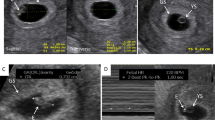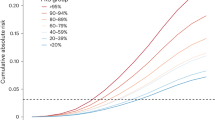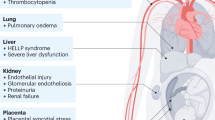Abstract
In this study, the role of parity in conferring protection of the mammary gland against chemical carcinogenesis induced by 7,12-dimethylbenz(a)anthracene (DMBA) was investigated. Experiments were also carried out to determine if an 'interrupted' pregnancy was capable of reducing the incidence of mammary tumour induction. Since it has been suggested that morphological development or the proliferative pattern of the mammary gland at the time of carcinogen administration may be involved in reducing the susceptibility of the mammary gland to chemical carcinogenesis, experiments were designed to elucidate the possible influence of these two factors. Sprague-Dawley female rats were mated and were either allowed to complete pregnancy and parturition or were subjected to Caesarian section on day 5, 10 or 15 of the pregnancy. When DMBA was administered i.v. to animals which had been allowed to complete a full-term pregnancy, only 14% developed tumours, compared to 70% in age-matched nulliparous controls. Termination of the pregnancy on days 5, 10 or 15 was as effective in reducing tumour incidence as full-term gestation and parturition, but still resulted in partial and statistically significant inhibition, compared to age-matched nulliparous controls. There was no significant difference in 3H-thymidine labelling index (LI) at the time of DMBA treatment in the parous rats compared to age-matched nulliparous controls. We also observed no significant differences in the morphological development of the mammary gland in parous and nulliparous rats of the same age. These results indicate that the protective mechanism may not lie in the mammary gland per se, but may indeed be a host factor, such as hormonal or immunological changes occurring in the host as a result of the pregnancy.
This is a preview of subscription content, access via your institution
Access options
Subscribe to this journal
Receive 24 print issues and online access
$259.00 per year
only $10.79 per issue
Buy this article
- Purchase on Springer Link
- Instant access to full article PDF
Prices may be subject to local taxes which are calculated during checkout
Similar content being viewed by others
Author information
Authors and Affiliations
Rights and permissions
About this article
Cite this article
Sinha, D., Pazik, J. & Dao, T. Prevention of mammary carcinogenesis in rats by pregnancy: effect of full-term and interrupted pregnancy. Br J Cancer 57, 390–394 (1988). https://doi.org/10.1038/bjc.1988.88
Issue Date:
DOI: https://doi.org/10.1038/bjc.1988.88
This article is cited by
-
Environmental exposures during windows of susceptibility for breast cancer: a framework for prevention research
Breast Cancer Research (2019)
-
Pregnancy duration and breast cancer risk
Nature Communications (2018)
-
Psychosocial Stress Exposure Disrupts Mammary Gland Development
Journal of Mammary Gland Biology and Neoplasia (2018)
-
Defining the genomic signature of the parous breast
BMC Medical Genomics (2012)
-
Breast epithelial cell proliferation is markedly increased with short-term high levels of endogenous estrogen secondary to controlled ovarian hyperstimulation
Breast Cancer Research and Treatment (2012)



